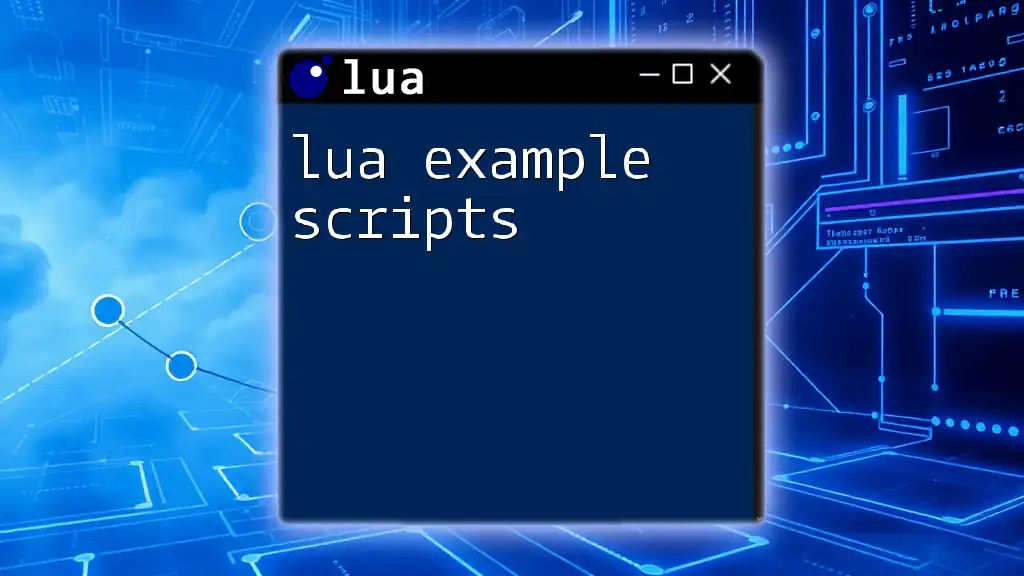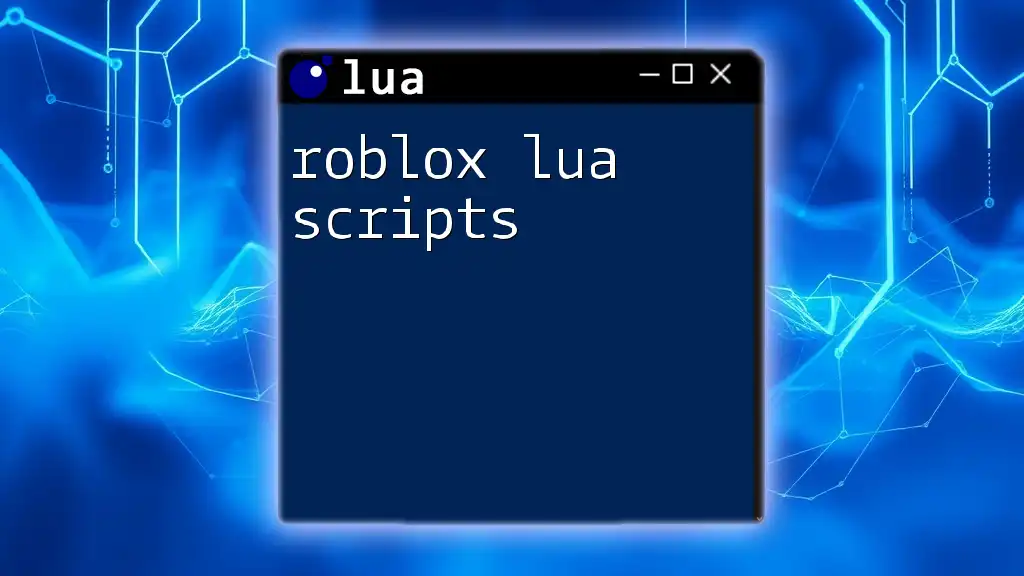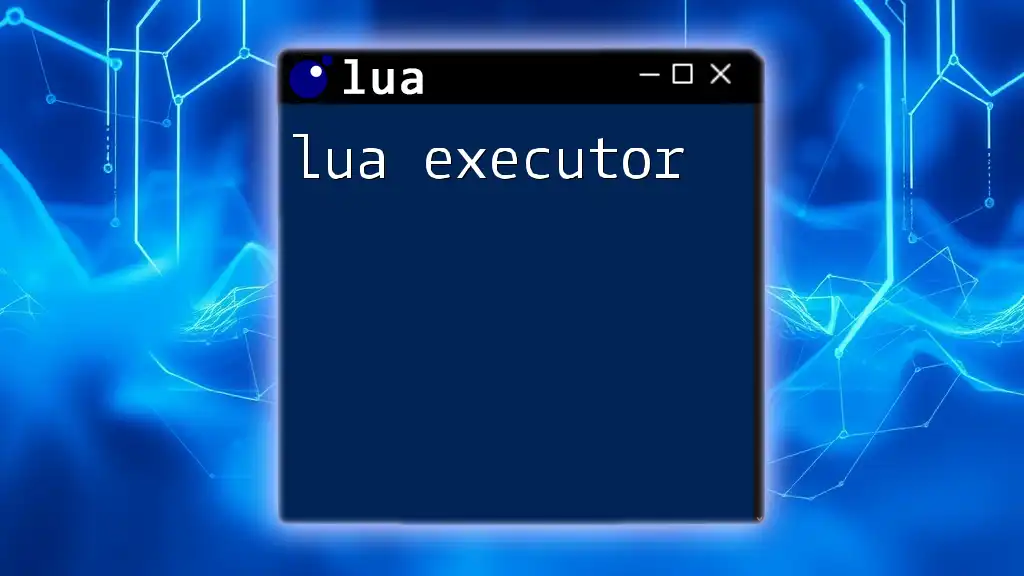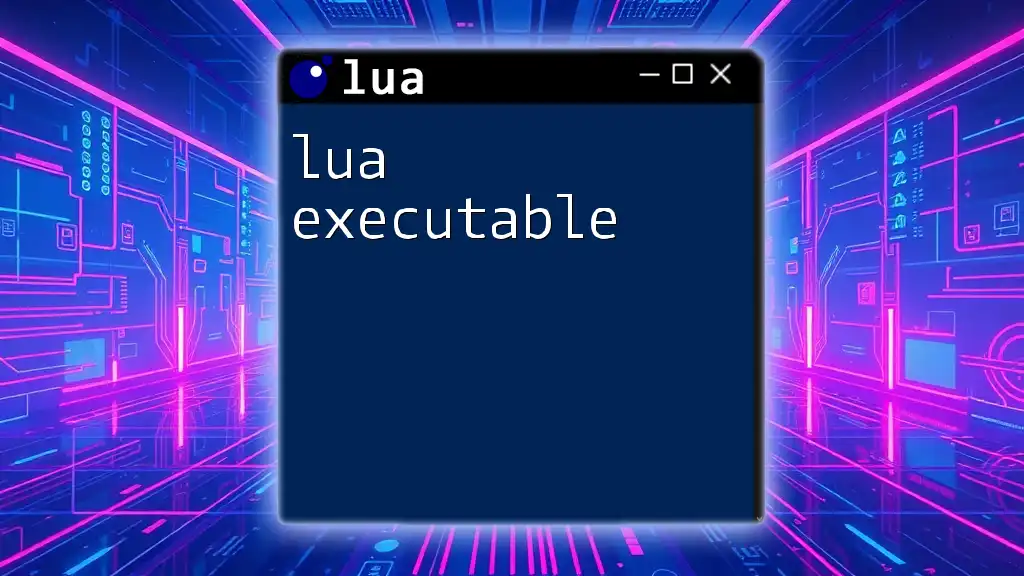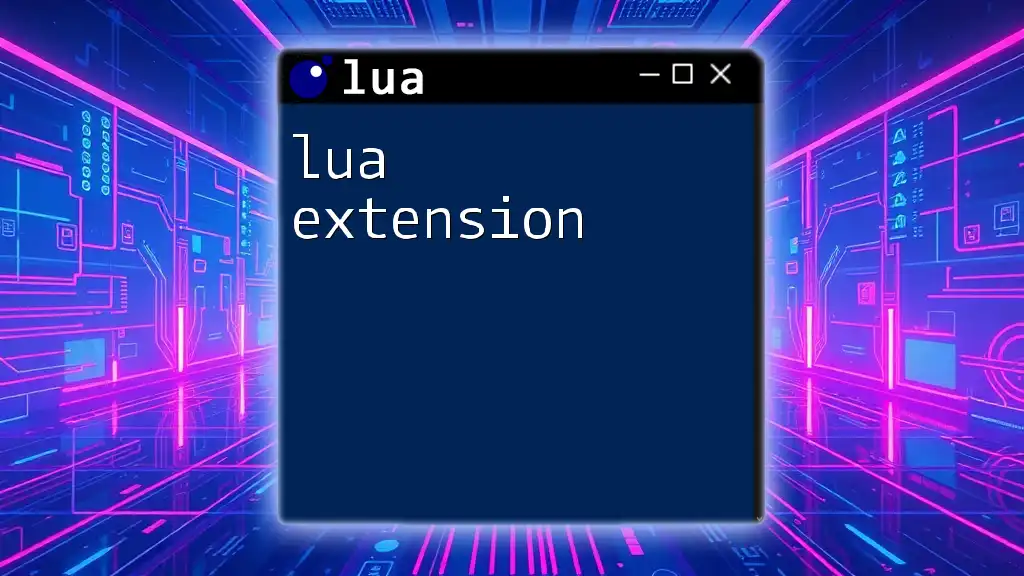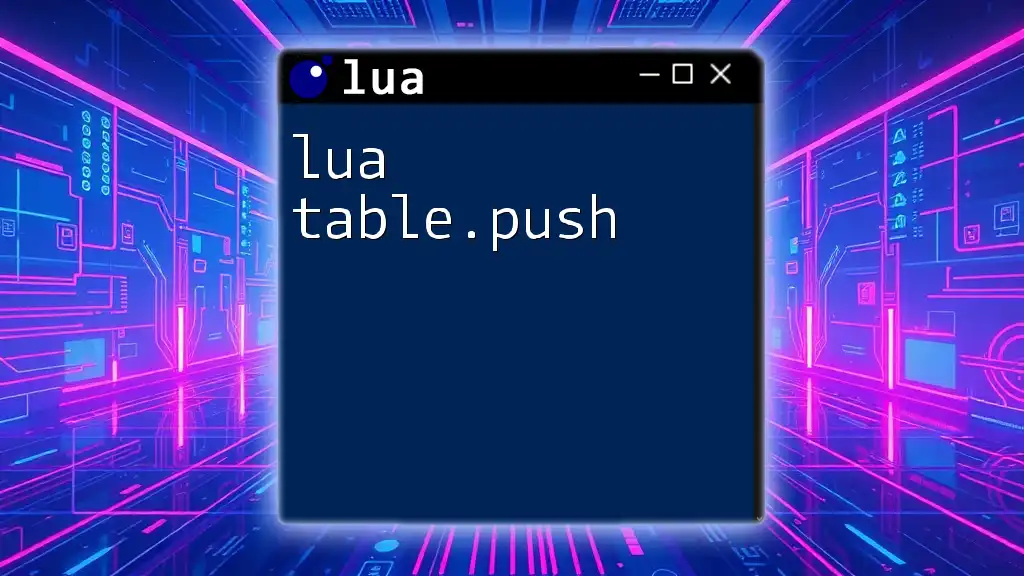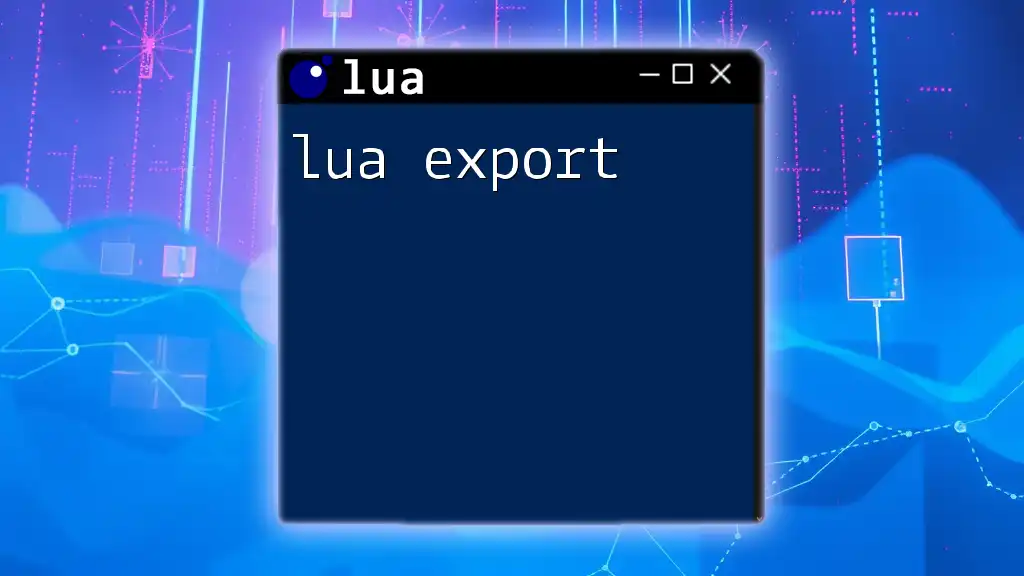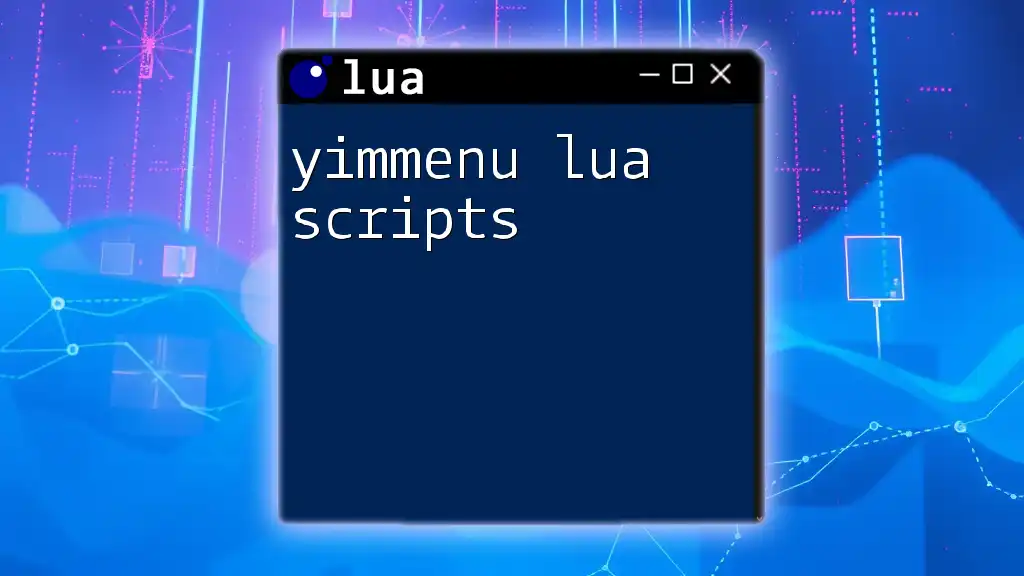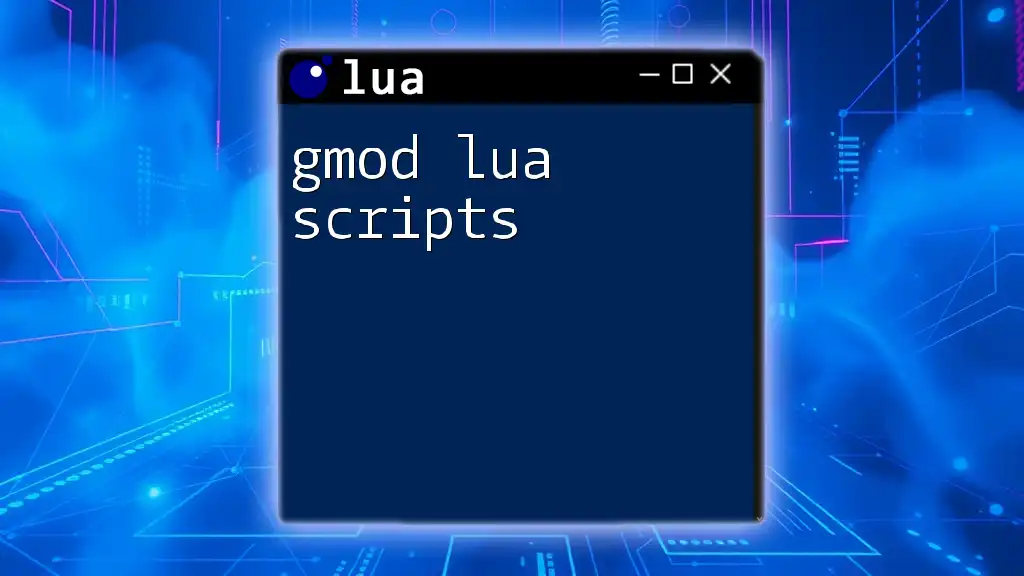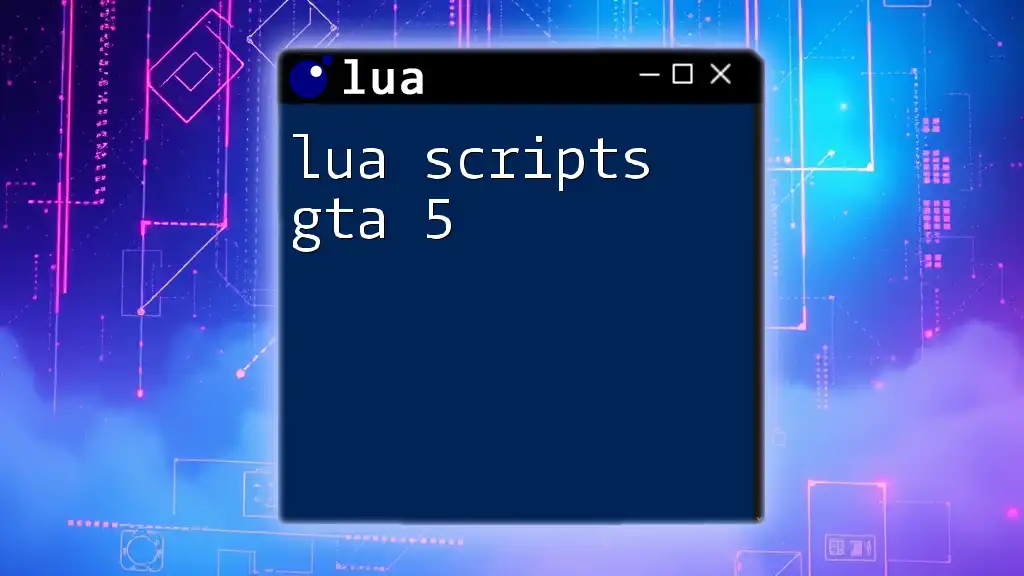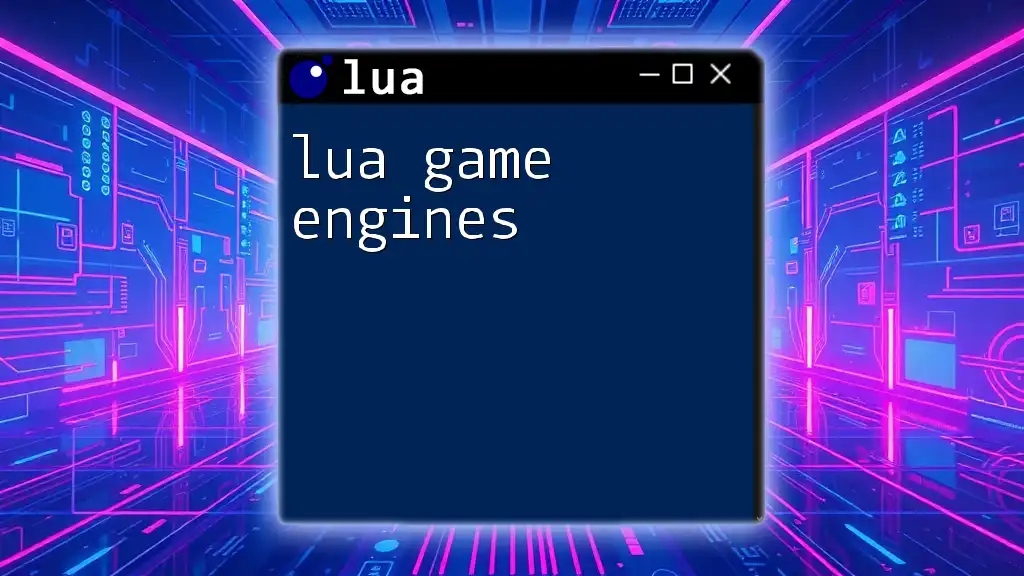Lua example scripts provide simple demonstrations of how to use Lua commands effectively, enabling beginners to quickly grasp the language's functionality. Here's a basic example of a Lua script that prints "Hello, World!" to the console:
print("Hello, World!")
Understanding Lua and Its Ecosystem
What is Lua?
Lua is a lightweight, high-level scripting language designed for embedded use in applications. It was introduced in 1993 and has since become popular for programming in various contexts, especially in game development and embedded systems. The language's design emphasizes simplicity and efficiency, making it a preferred choice for developers who need a flexible scripting option.
Why Lua?
The benefits of using Lua are numerous:
- Lightweight and Fast: Lua has a small footprint and executes commands quickly, ideal for resource-sensitive applications.
- Extensible: Lua allows users to create their own functions and data types, making it highly adaptable.
- Easy to Learn: With a straightforward syntax, newcomers can quickly grasp its concepts and start scripting.
- Popular Applications: Lua is integrated into numerous applications and frameworks, such as the Roblox game engine and the Nginx web server, further solidifying its utility across different domains.
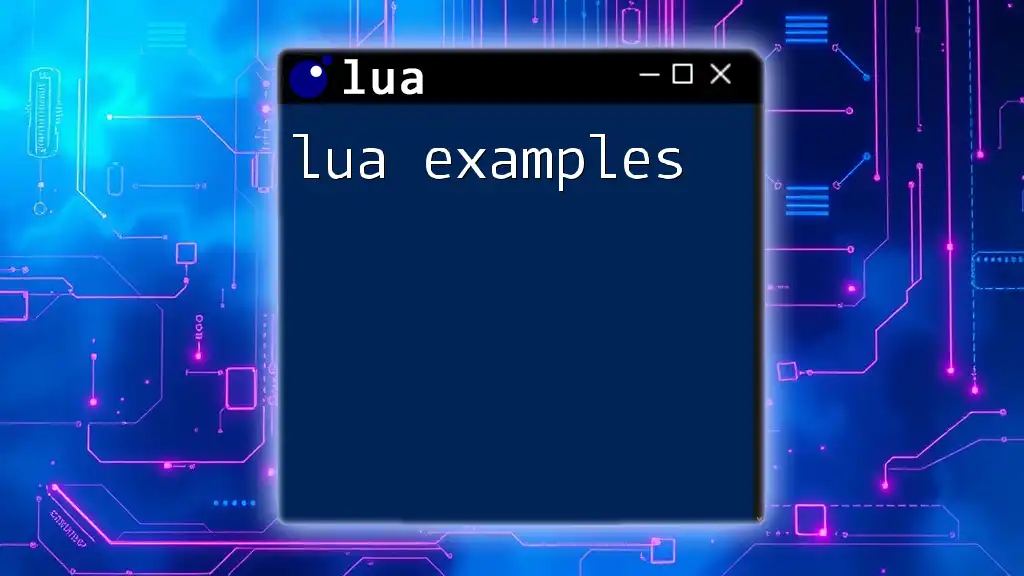
Setting Up Your Lua Environment
Installing Lua
To get started with Lua, download and install the interpreter from the [official Lua website](https://www.lua.org/download.html). Installation processes may vary based on your operating system:
- Windows: Download the appropriate binary and follow the on-screen instructions.
- macOS: For Mac users, installing via Homebrew can be done with the command:
brew install lua - Linux: Linux users can generally install Lua through their package managers. For instance, on Ubuntu, you can run:
sudo apt-get install lua5.3
Choosing an IDE or Text Editor
Your development environment matters. Selecting an appropriate IDE or text editor can enhance your coding experience. Consider these options:
- LuaRocks: A package manager for Lua that provides a great way to handle dependencies and libraries.
- ZeroBrane Studio: Tailored specifically for Lua, it offers debugging features and code assistance.
- VS Code with Lua Extension: A popular text editor that, with the right extensions, can effectively support Lua development.
Look for features such as syntax highlighting, code completion, and debugging tools to optimize your workflow.
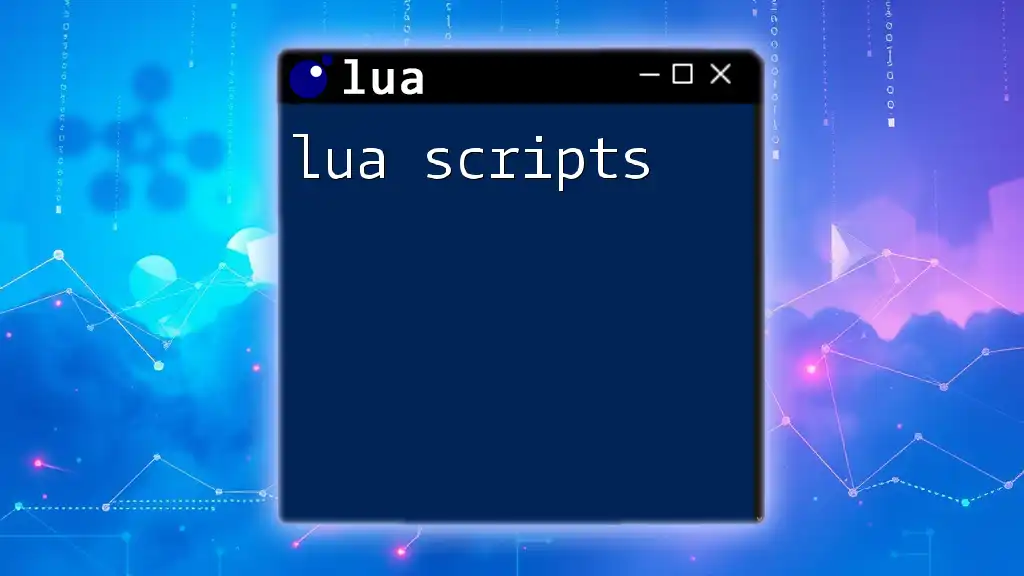
Basic Lua Syntax
Variables and Data Types
In Lua, declaring variables is straightforward. You can define variables using the `local` keyword, which restricts their scope to the current block. Here’s a simple example:
local number = 10
local string = "Hello, Lua!"
local boolean = true
Lua’s primary data types include:
- Strings: Used to represent text.
- Numbers: Can be integers or floating-point numbers.
- Booleans: Represent true or false values.
- Tables: The main data structure for storing collections of data.
Control Structures
Conditional Statements
If statements allow you to perform actions based on conditions. Here's how they work:
if number > 0 then
print("Positive number")
elseif number < 0 then
print("Negative number")
else
print("Zero")
end
This snippet checks the value of `number` and prints a corresponding message, illustrating how to control your program's flow based on conditions.
Loops
Loops enable the repetition of code. There are two commonly used loops in Lua:
For Loop: Ideal for iterating a fixed number of times:
for i = 1, 5 do
print(i)
end
While Loop: Continues executing as long as a condition is true:
local count = 0
while count < 5 do
count = count + 1
print(count)
end
These examples show the basic structure and functionality of loops in Lua, allowing for efficient control flow in your scripts.
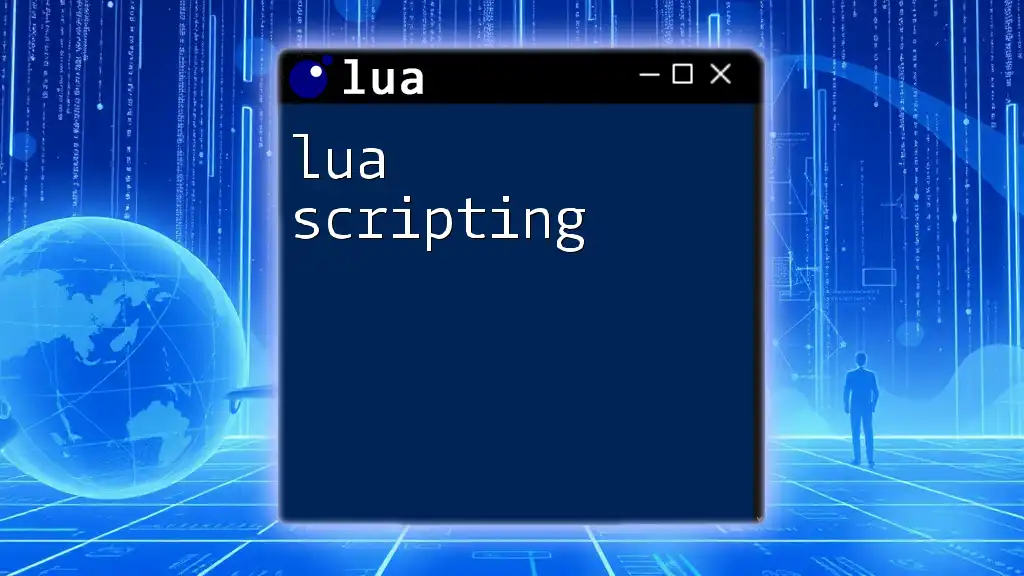
Practical Lua Example Scripts
Hello World Script
Every programming journey begins with a "Hello, World!" script. It’s a simple yet powerful introduction to the language:
print("Hello, World!")
This example serves as an entry point for learners, showcasing how to execute a command and display output.
Simple Calculator Script
Let’s take a step further by building a basic calculator. Below is a straightforward script utilizing functions for addition and subtraction:
function add(a, b)
return a + b
end
function subtract(a, b)
return a - b
end
print(add(5, 3)) -- Output: 8
print(subtract(5, 3)) -- Output: 2
This code not only demonstrates function usage but also emphasizes the importance of modularity in your scripts.
Reading and Writing Files
Lua allows manipulation of files easily, which is essential for data handling. Here’s a simple script that writes to a file:
local file = io.open("example.txt", "w")
file:write("Hello, Lua File I/O!")
file:close()
In this snippet, we open a file for writing, write a message, and then close the file. File handling is critical for many applications, making this an essential skill for Lua programmers.
Creating a Basic Game (Pseudocode)
Lua’s versatility shines in game development. Let’s outline a basic game loop, where we continuously update the score:
local score = 0
while true do
print("Score: " .. score)
-- Game logic here
score = score + 1 -- Simulating scoring
end
This pseudocode captures the essence of a game loop, where the score is updated continuously, laying the groundwork for more complex game mechanics.
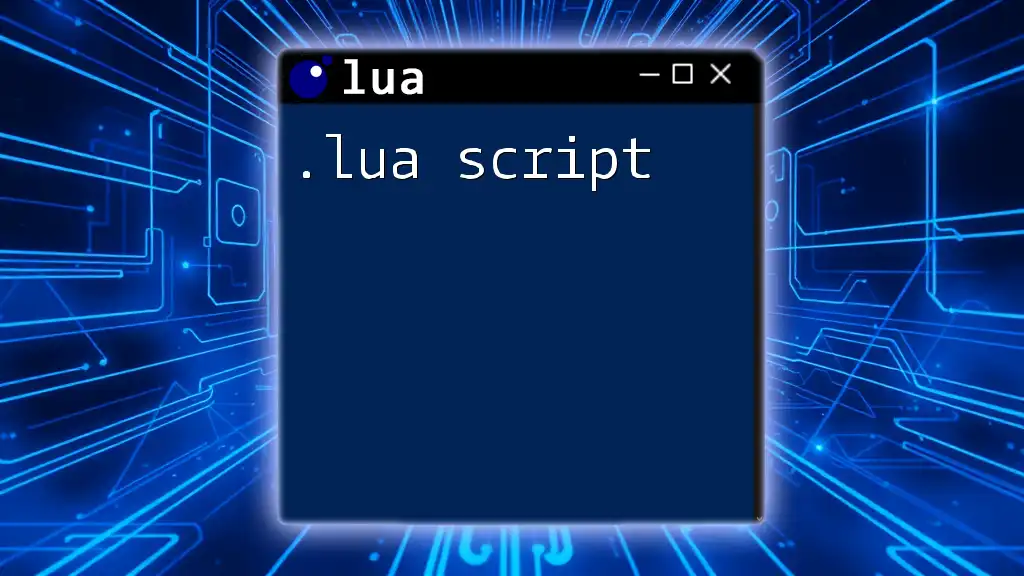
Advanced Lua Features
Tables as Data Structures
Tables in Lua are powerful and can be used as arrays, dictionaries, or objects. Here’s an example of creating and manipulating a table:
local fruits = {"apple", "banana", "cherry"}
print(fruits[1]) -- Output: apple
This code snippet illustrates how to create a simple table to store fruit names and access its elements using index notation.
Metatables and Metamethods
Metatables add another layer of power to Lua, providing the ability to define custom behaviors for tables. Here's an example demonstrating metatables and metamethods:
local mt = {
__add = function(a, b) return a.value + b.value end
}
local obj1 = {value = 10}
local obj2 = {value = 20}
setmetatable(obj1, mt)
setmetatable(obj2, mt)
print(obj1 + obj2) -- Output: 30
In this example, we create a metatable for custom addition. By setting the metatable for our objects, we allow intuitive operations using the `+` operator.
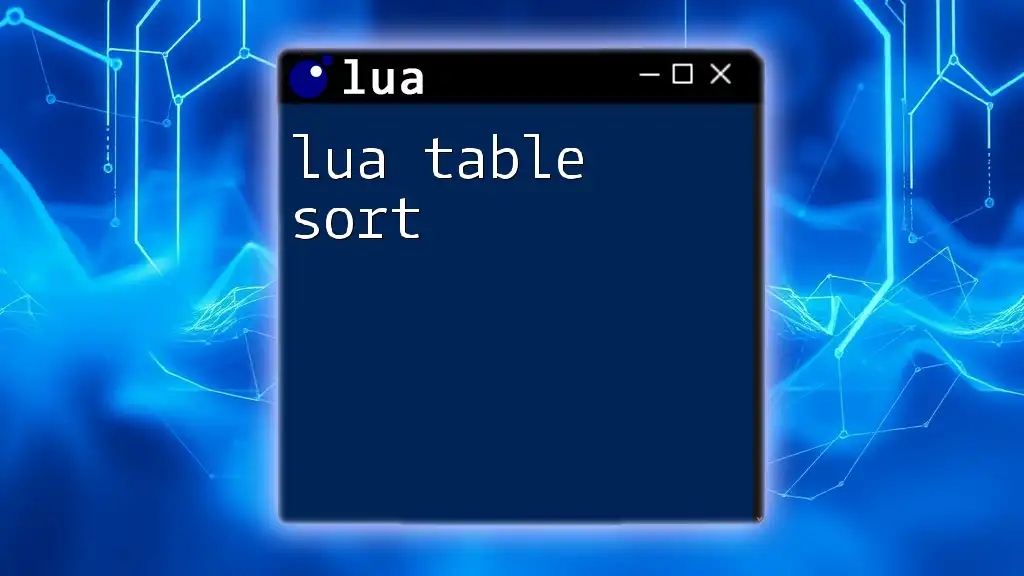
Conclusion
Recap of Key Takeaways
In this comprehensive guide, we've explored essential Lua example scripts, from installation and basic syntax to practical applications and advanced features. Each script provides insight into the language’s versatility and functionality, making it accessible for beginners and a powerful tool for experienced developers.
Further Resources
To deepen your Lua knowledge, consider consulting the [official Lua documentation](https://www.lua.org/manual/5.1/) and exploring recommended books or online tutorials. The community around Lua is active and helpful, providing various channels for support and learning.
Call to Action
Now that you're equipped with a foundational understanding of Lua through these example scripts, I encourage you to experiment with the scripts provided. Modify them, create your own, and join communities or forums dedicated to Lua programming to further expand your skills. Happy coding!

